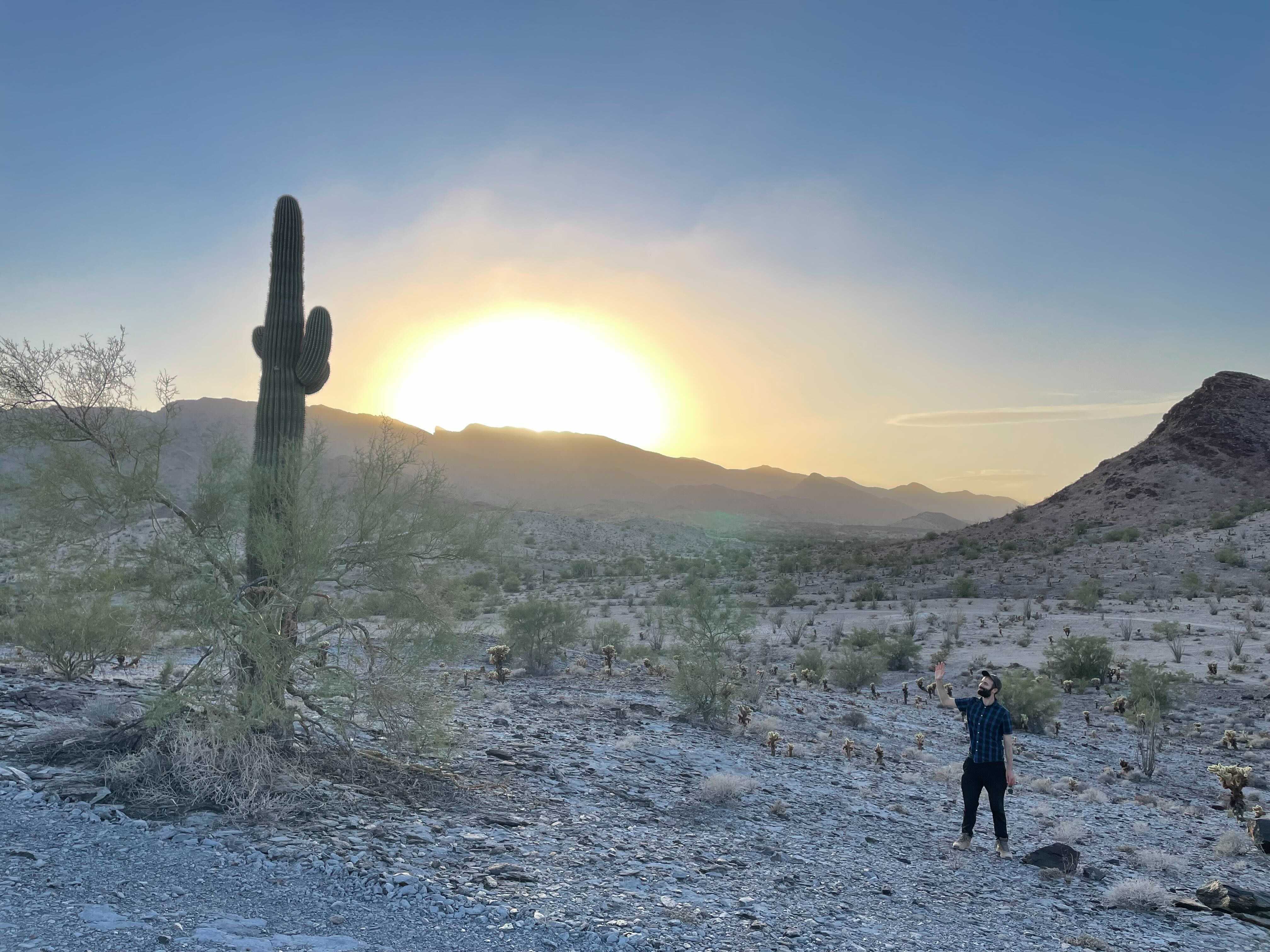CCAI Core Team Profile: Evan Sherwin

The CCAI blog occasionally features profiles of core team members. This week, we check in with methane researcher and CCAI core team member Evan Sherwin.
Tell us a little about yourself.
I study the future of hydrocarbon fuels in a net-zero-emission energy system, focusing on methane emissions from oil and gas and synthetic hydrocarbons in my postdoctoral work at Stanford University in California. With a PhD in Engineering and Public Policy and an MS in Machine Learning from Carnegie Mellon University in Pennsylvania, I use engineering insight to produce data-driven analyses to inform government and industry emissions reduction efforts. I founded and chair the Methane Emissions Technology Alliance international webinar series and was a founding member of Climate Change AI.
What role(s) do you play within CCAI?
As the Chair of the Programs Committee and a member of the Board of Directors of Climate Change AI, I support teams producing our various programs, including conference workshops, webinars, happy hours, community events, grants, and our summer school. My primary responsibility is mentorship, community-building, and guiding the future of the organization. I also provide hands-on support as needed. I co-led the 2020 Tackling Climate Change with AI NeurIPS workshop.
How did you get involved with CCAI?
I was an author of the Tackling Climate Change with Machine Learning report, and helped found Climate Change AI to help achieve the vision we outlined.
What are some common paths people take to doing the kind of work you do?
The road to a position like mine generally includes its twists and turns. A PhD is generally necessary, but it often pays to work in industry or consulting for a few years beforehand. I spent three years in quantitative energy policy consulting after completing my undergraduate degrees in physics and applied mathematics at University of California, Berkeley. This helped me find what I felt was an impactful path in graduate school and beyond.
What motivates you to work at the intersection of AI and climate?
Remote sensing is a powerful tool to quickly find and flag large methane emissions. Much of my work focuses on characterizing the policy and industrial implications of the rapid development of aerial and satellite-based methane remote sensing systems. Also, a lot of machine learning is just statistics, and sometimes plain old statistics is the key to answering really important questions.
Who or what inspires you?
The powerful response that CCAI continues to receive across disciplines, sectors, and continents has been overwhelming. The knowledge that I can help build a community of brilliant problem-solvers to tackle climate change is an inspiration.
What are the most important lessons you’d like to share with others who are interested in this space?
Don’t be afraid to pick up new disciplines as you go along. Also, however much statistics you’ve learned already, learn more.
